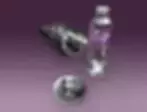
A new era in beverage packaging has dawned with the introduction of Sidel's innovative StarLite-R Still solution. This cutting-edge technology is designed to create robust bottle bases for still beverages, incorporating 100% recycled PET (rPET) material. The system is tailored for efficient production across a wide range of products, from water and juices to milk and edible oils, with capacities spanning from 250 milliliters to 2.5 liters. By optimizing the manufacturing process, this technology ensures that manufacturers can maintain high-speed operations without compromising on material integrity or weight efficiency. The design allows for seamless integration into existing production lines, making it an adaptable choice for various industries.
The advanced engineering behind StarLite-R Still focuses on sustainability and performance. One of its standout features is the reduced blowing pressure required during the molding process, which not only enhances energy efficiency but also minimizes production costs. The bottle base's unique structure, featuring rounded edges and precise venting, facilitates smoother shaping during blow molding. This innovation significantly reduces the risk of defects such as bursts, especially critical for lightweight bottles made from thinner materials. Additionally, the optimized cooling system ensures reliable performance even under high-temperature conditions, maintaining the quality and durability of the bottles throughout their lifecycle—from production to transportation and use.
As consumer demand for sustainable products grows, companies like Sidel are at the forefront of developing solutions that align with environmental goals. The StarLite-R Still technology represents a significant leap forward in eco-friendly packaging, offering manufacturers a viable option to reduce their carbon footprint while achieving high-performance standards. By embracing this technology, businesses can meet regulatory requirements and cater to the increasing preference for environmentally responsible products. The ability to produce up to 2,700 single-serve bottles per hour or 2,400 multi-serve bottles per machine underscores the potential for substantial cost savings and operational efficiency. Ultimately, this advancement paves the way for a greener future in the beverage industry, promoting both sustainability and innovation.
